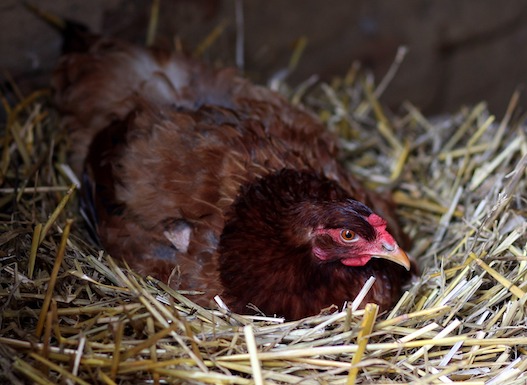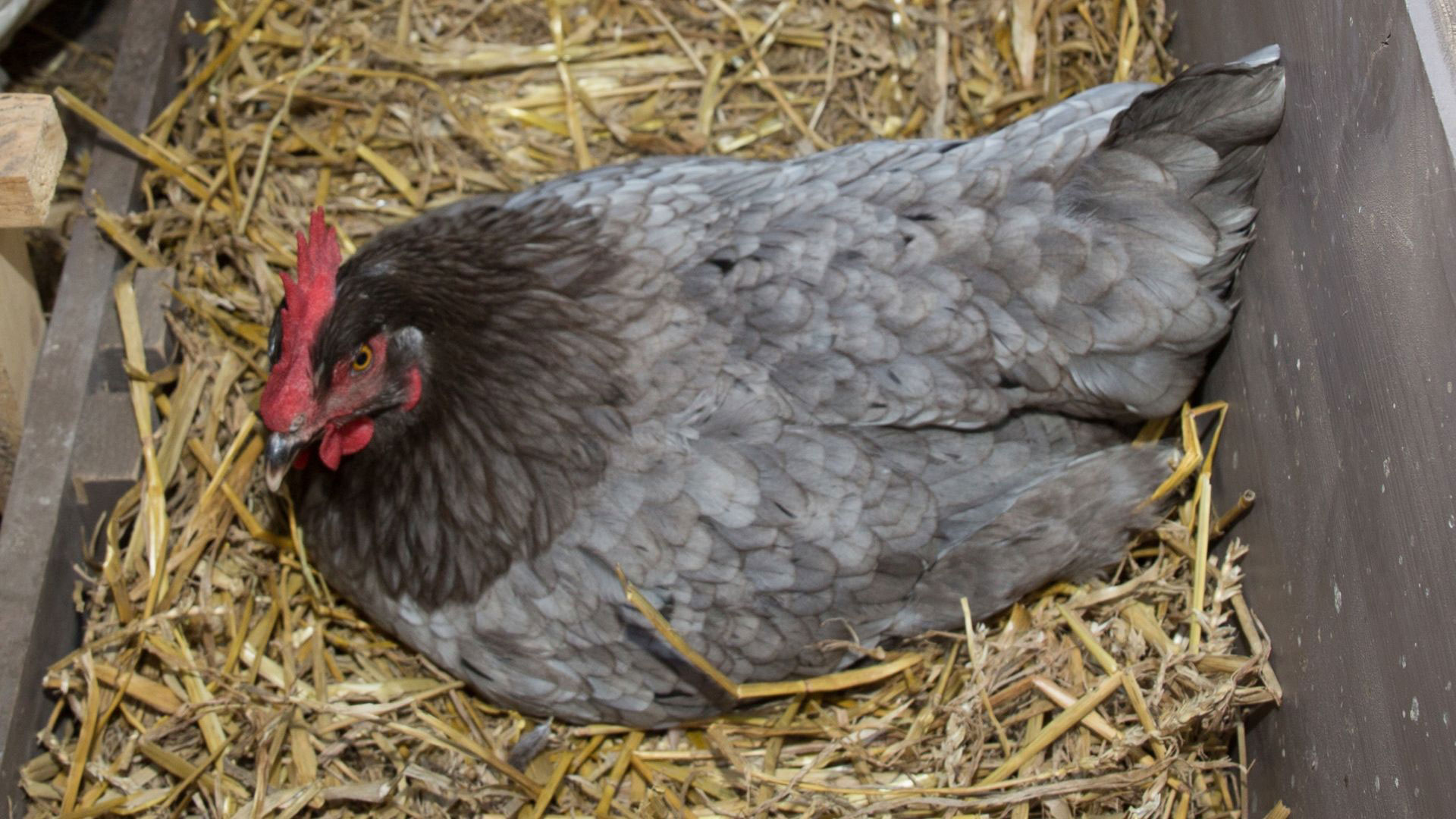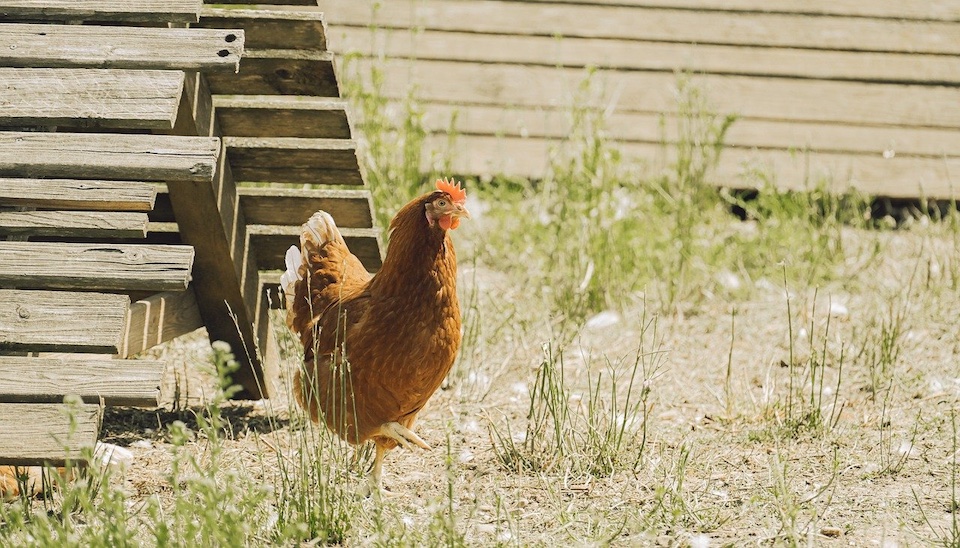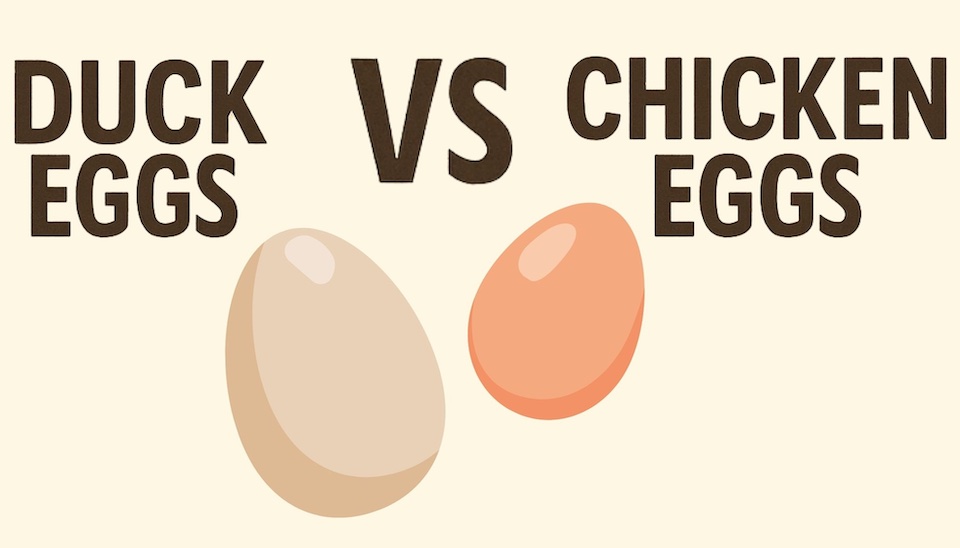What is a Broody Hen? What to do
What is a Broody Hen? What to do
It is a question that all backyard chicken keepers encounter - what to do about a broody hen. If your hen is staying on the nest all day, she is probably broody.
If you want to hatch fertilised eggs under a hen, a broody hen is great news! But if you don't, the broody hen should be cured of her broody instinct as soon as possible. It can seem mean, but broody hens actually put their health at risk and cause problems in the chicken coop. There are many ways to cure a broody hen, but isolating them in a specially-designed pen is the best option. Scroll down for instructions on what to do if you have a broody hen.
This handy article outlines the symptoms that characterise a broody hen and what you can do to get your hen off the nest and back to her normal self.
Key Takeaways
- A broody hen is a hen that has decided to hatch eggs, displaying a strong natural mothering instinct, which varies between individual hens and breeds.
- Signs of broodiness include reduced egg production, sitting in nesting boxes for long periods, aggression when disturbed, and neglecting eating and drinking.
- It’s essential to stop broodiness as soon as possible to prevent health risks unless you want to hatch chicks under the hen.
- There are 5 ways to cure a broody hen, including taking her off the nest or locking her out of the coop, cooling the hen, promoting exercise or using a broody-breaking box.
- The most effective way to cure a broody hen is with a broody-breaking box, a separate cage that is not conducive to nesting.
What is a broody hen?
A broody hen is a hen that has decided to hatch eggs.
Broodiness is a natural mothering instinct that is stronger in some hens that others. Some chickens will never go broody, while others will go broody regularly.
Recognising a broody hen
Broody hens want to hatch a clutch of eggs. But they don't normally become broody overnight. This means that if you are paying attention to the behaviour of your hens, you will be able to recognise broody hens early.
Usually, a broody hen will begin by making a nest, then laying a clutch of eggs to sit on.
Only once the clutch is complete will she stay on the nest until the eggs hatch. However, some hens have such a strong brooding instinct that they will become broody even if they don't have eggs to hatch!
Signs of broodiness
It is important to watch your hens for the symptoms of broodiness. The earlier you catch a broody hen, the easier it is to stop her being broody. And if you want to hatch chicks, it is important to get fertilised eggs under the broody hen as quickly as you can!
The earliest sign of broodiness is decreased egg production.
This is not because the broody hen has stopped laying, although she will once she begins sitting on the nest in earnest. Instead, when hens start getting broody they often look for a more private and secluded nest. This might be under a bush, in a garden or in a clump of grass. The broody chicken will start hiding her eggs in this new nest, ready for incubation, and other hens will usually get in on the action too.
So if you have an unexplained drop in egg production, and especially in spring, look around the run to see if you have a broody who is hiding eggs!
Other signs of broodiness:
- Sitting in the nesting box for hours
- Building nests in dark, secluded spots
- Staying in the nesting box overnight rather than roosting with the rest of the flock
- Disappearing during the day rather than foraging with the rest of the flock
- Aggression when you or other hens approach the nesting box, including a low growl, puffed feathers and aggressive pecking
- A bare patch on the chest (broody hens pluck their chest feathers to better warm the eggs)
- Failure to leave the nest to eat or drink
- Giant, smelly poop that is much bigger than normal (this is because broody hens only poop once a day!)
Egg laying issues such as Egg Binding can lead to a hen sitting on the nest for long periods of time. Always look for other signs of broodiness and check sitting hens to ensure they are broody and not genuinely unwell!
The picture below shows typical broody hen posture on the nest. Notice the way the hen has flattened herself to the eggs?

Sometimes a broody hen will disappear completely:
Once we had a customer who had lost her white leghorn. The bird had vanished without a trace. She had checked all fences and found no apparent way for the chook to break out of the run. After convincing herself the chicken was the victim of a hawk, she came into our store after bird netting to predator-proof the chicken run.
After predator-proofing the run, this same customer saw the missing, presumed dead, chook! The hen was bolting down the yard in a whirling dervish of white feathers, squawking and scattering other birds left and right. It hit the chicken feeder, ate like it was starving, and was gone again in less than a minute.
Any backyard chicken keeper who has had chickens sit on eggs will be familiar with the "starving hen" routine. This customer's naughty leghorn had not been eaten: she was broody.
When do hens go broody?
Hens can become broody at any time of year. But warm weather definitely helps. There's a certain time of year, usually in spring, when, all of a sudden, all the locals have broody hens!
Hens are also more likely to become broody for the first time in their first year of laying. But they can become broody at any age.
Some hens may become broody every spring, like clockwork, while others may only be broody once or twice in their lives.
You need a rooster for hens to go broody, and other myths
There are a lot of myths about broody hens, including:
- You need a rooster for hens to go broody - Nope, the rooster has nothing to do with it
- Hens will only sit on fertile eggs - Hens will sit on infertile eggs, golf balls, rocks, no eggs at all... it all depends how strong their brooding instinct is.
- Hens will only stay on the nest for 21 days - Some hens will stay broody indefinitely, even if the eggs don't hatch, while others will abandon the nest partway through incubating the eggs.
- Hens can tell if eggs are viable - Sometimes hens will discard dead eggs from the nest, but they also sometimes discard fertile eggs or sit happily on dead eggs.
- Hens will only sit on their own eggs - Most chickens don't seem to mind sitting on the eggs of other hens, or even other breeds!
- Hens that are broody are good mothers - Some broody hens will intentionally kill their chicks when they hatch or squash them all accidentally. Some broody hens will have no desire to actually mother the chicks when they hatch. It is impossible to know if a broody hen will be a good mother once the chicks hatch or whether she'll even stay on the nest that long!
Are some chicken breeds broodier than others?
Broodiness is not linked to a particular breed.
However, some chicken breeds are more likely to go broody than others. These include Silkies and Australorps.
Heritage breeds are more likely to go broody than commercial hybrids like ISA Browns and Hyline Browns which have been bred to reduce the mothering instinct.
Some chicken breeds are also know for being better mothers than others, but our experience is that usually it comes down to the individual hen!
Why are broody hens a problem?
If you want chicks, then broody hens are great news. But broody hens are a problem if you don't want to raise chicks.
Broody hens can be a problem because:
- Broody hens stop laying.
- Broodiness in one bird can also decrease egg production overall, as it seems to be contagious. If one bird wants to sit, several will.
- Broody hens sometimes steal other hen's eggs or may not let others use the nesting box, forcing them to lay elsewhere.
- Broody hens can sit on eggs that aren't fertile, indefinitely...
- Broody hens lose weight and condition, and become prey to parasites
- Not all chickens make good mothers
If you do want to hatch chicks, you need to stop the broody hen as soon as you can for her own good. Broody chooks rarely eat or drink, they don't dust bathe or take care of themselves. They are sacrificing their health for the needs of their eggs. But if you aren't hatching chicks, it is better not to allow your hens to compromise their health by sitting for extended periods.
What to do when hens go broody
If you want to expand your flock with some chicks, having a broody hen is excellent news. If you have a rooster, you can just let the hen sit. Otherwise, if you catch the hen in the first few days you can beg or buy fertilised eggs to put underneath her. Don't put fertilised eggs under a hen that has been broody for more than a week, as she is unlikely to see the incubation period through at that stage.
Learn about how to hatch eggs under a broody hen here.
If you don't want to hatch chicks, you will need to 'break' your broody hen as soon as possible. This means to stop her being broody, and is not as brutal as it sounds. Breaking a broody hen is better for her health and also means better egg production from your flock.
5 ways to stop a broody hen
The less time a hen has spent sitting, the easier it is to convince her to give up the nest and return to normal flock life.
There are loads of ways to break a broody hen, and everybody has a favourite. Just taking away the eggs everyday is not enough.
Here are 5 easy ways to cure a broody hen. We think the BBB (number 5) is the best option.
1. The boomerang method
This technique is very effective in the first few days of broodiness, before the hen has started sleeping in the nest. Once the hen is truly sitting, we recommend the BBB (see below) as the boomerang method can be distressing for the hen in later stages of broodiness.
- Remove the hen from the nest multiple times daily.
- Use bribes or treats such as dried mealworms to help keep the chicken of the nest.
- You can also move the hen out of the nesting box and onto the roosts at night. Usually they are too timid to make their way back to the nest in the dark.
2. The lock-out method
This method is most effective for hens that aren't very determined. Determined hens, however, will simply find somewhere outside to build a sneaky nest, causing more problems!
- In the morning after eggs are laid, lock the hens out of the coop for the day. Make sure they have adequate food, water and shade as well as protection from predators.
- Blocking off the nesting boxes for the day is also useful.
3. The cool-down
Cooling a hen's body temperature can help convince them that they are not broody, as the heat is essential for the eggs. There are many ways to do this, some kinder than others. Some people bathe their birds in cool water on a warm day. Others suggest placing ice cubes or frozen water bottles in the nest.
4. Chicken boot camp
Increasing a bird's activity can also help decrease the hormones that make them broody. The lock-out method relies on this. You can also use the boomerang method but take the hen as far as possible from the coop so there is lots of activity, as well as distractions, before they get back to their nest.
5. The BBB - broody-breaking box
This is probably the kindest as well as the most reliable method of breaking a broody hen. The idea relies on placing the hen somewhere that they can’t nest.
The broody-breaking box (also known as Time Out in our chicken coop) can be a hospital pen or bird cage, but it needs to be:
- Light, as broody hens want a dark place to nest
- Raised with a wire floor, so air can pass underneath and cool the hen (ensure the wire is thick enough not to damage the hen's feet)
- Completely without nesting material, including litter, newspaper etc.
Provide food and also ensure adequate water, even add a roost if you like.
After a couple of days, let the hen out. They should re-join the flock, but if they’ve been broody for a while or have extra strong instincts, they may go back to the nest, in which case leave them in the box for a bit longer.
Remember, whatever method you choose, the sooner you deal with a broody hen, the easier it will be to convince her to leave the nest!
Can you stop chickens going broody?
Broodiness is an instinct, and it isn't possible to stop your hens going broody if they are inclined to do so. But collecting eggs regularly, or using a Roll-Away Nesting Box and ensuring your coop is nice and light can help.
Also read:
- What are signs of Egg Binding?
- How to hatch eggs under a broody hen
- Where to buy fertile chicken eggs for hatching
If you have a topic you would like us to write about, send us your ideas through the contact us page of our website.
Happy chicken keeping!
Rachael at Dine-A-Chook Australia



